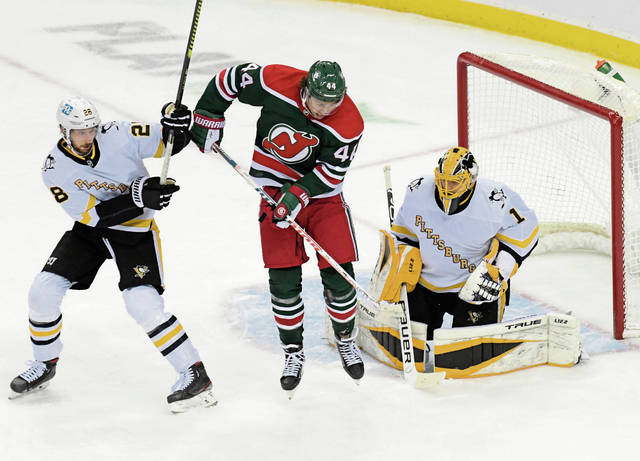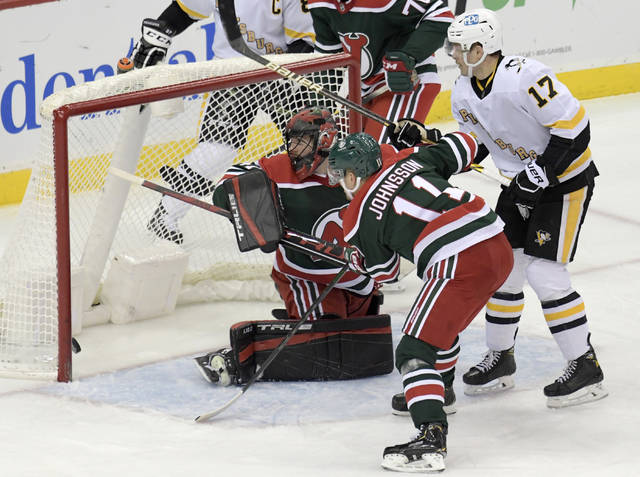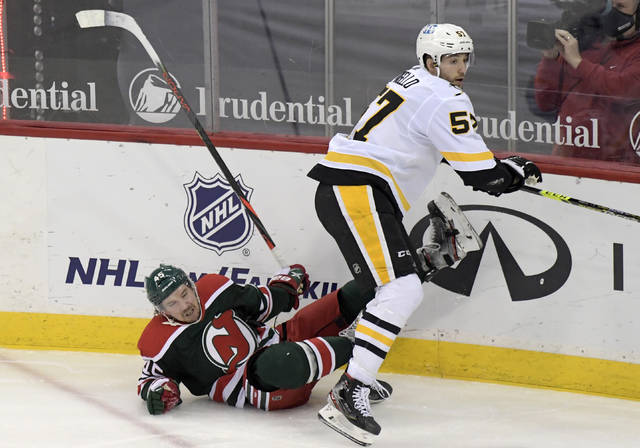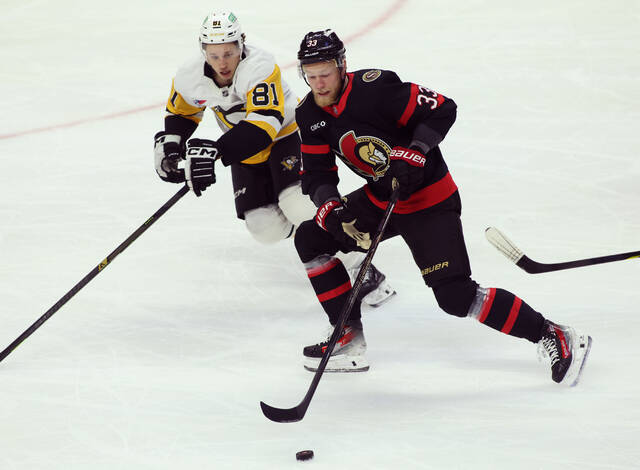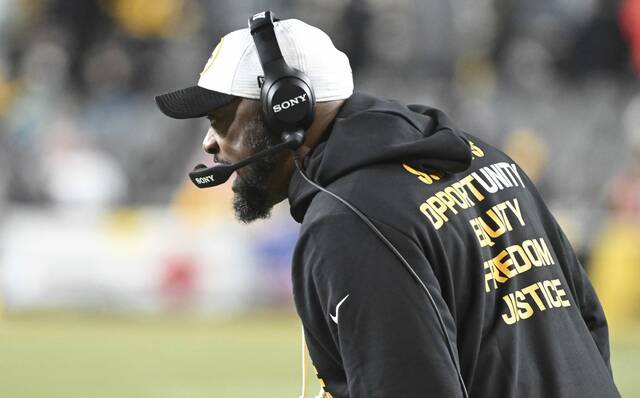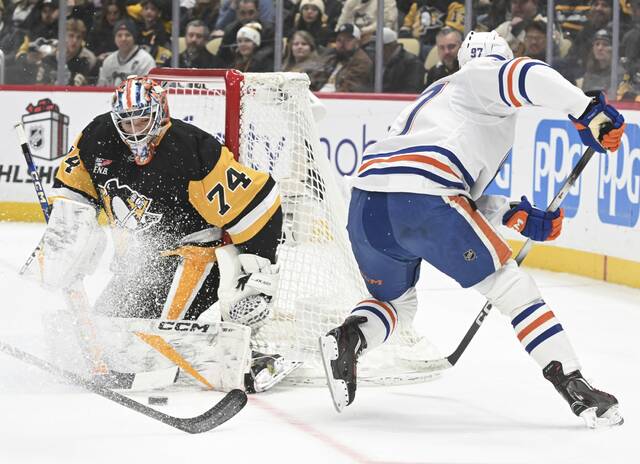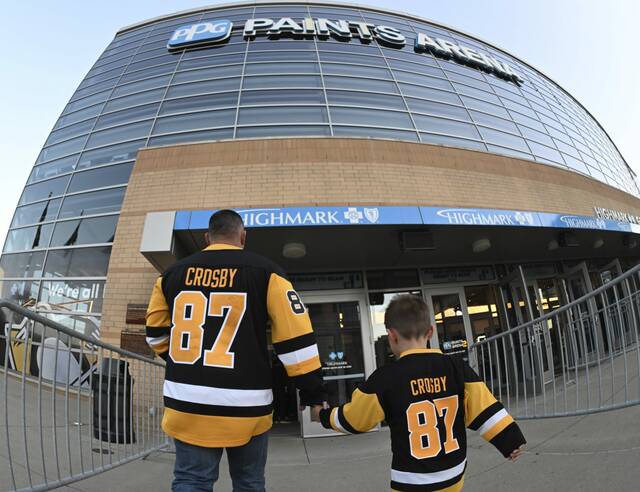Having allowed the opposition to score power-play goals in 21 of 31 games this season, a charitable way of describing the Pittsburgh Penguins’ penalty kill would be that it’s a work in progress.
A realistic way would be to say it flat-out stinks.
However you want to label it, it didn’t get stronger when forward Brandon Tanev, one of the team’s leading short-handed entities, was a last-minute scratch because of an undisclosed injury following warmups Saturday afternoon at Prudential Center in Newark, N.J.
After the game, coach Mike Sullivan did not provide an update on Tanev’s status other than to say he was being evaluated.
Despite Tanev’s absence, coupled with Teddy Blueger, another top defensive forward, being on injured reserve with an undisclosed ailment, the Penguins’ penalty kill was able to turn away all four power-play chances the New Jersey Devils had and helped spark a 3-1 comeback road win.
Granted, the Devils are a handful of Hockey Hall of Famers short of having anything resembling a threatening power play. They entered Saturday’s contest with the NHL’s 28th-best power play. But they were dangerous enough to score a goal on their lone chance with the man advantage during a 3-2 home win Thursday against the Penguins.
Less than 48 hours later, the Penguins made a series of adjustments and limited the Devils to a single shot during eight minutes of power-play time.
“Specifically, we did a pretty good job on limiting their success on (the Devils’) entries,” Sullivan said. “We made the entries difficult. We made possession difficult. And when we do that, we can limit their zone time. That’s such an important aspect of killing penalties. We won some faceoffs, which allowed us to get some 200-foot clears as well. If you can win that first faceoff, a lot of times it kills 20 seconds from, usually, their top power-play unit and they’ve got to expend energy gaining access back into your zone.
“So, the combinations of limiting the entries and the faceoffs, I think were a big part of it.”
Overall, the Penguins did a pretty effective job of limiting the Devils, who admittedly are limited to begin with in regards to offensive acumen, to 25 shots. In contrast, New Jersey generated 35 shots during Thursday’s game.
“We found in (Thursday’s) game that we gave up a lot in the middle, a lot of grade-A scoring chances,” defenseman Cody Ceci said. “We just started to play a little bit tighter, keep them on the outside. They were wheeling around the outside for a long time on some shifts, but we were trying to limit the chances we gave up in the middle and the (grade-A scoring chances).”
The Devils’ goal came on such a chance 7 minutes, 19 seconds into regulation when forward Kyle Palmieri cleaned up a rebound above the crease for his fifth goal of the season.
The Penguins responded at 4:59 of the second period. Settling a bouncing puck in the left circle of the offensive zone, forward Zach Aston-Reese leaned down and snapped a wrister under the left leg of goaltender Scott Wedgewood for his sixth goal of the season.
The Penguins took a lead for good only 1:36 later on a power-play score by forward Bryan Rust, his 11th of the season.
In the third period, the Penguins took two minor penalties in quick succession, a holding minor against forward Anthony Angello at the 7:17 mark and a tripping infraction against defenseman Brian Dumoulin at 9:21.
Despite facing almost four consecutive minutes of a power-play time for the Devils, the Penguins were stout on defense, allowing a single shot.
Forwards Mark Jankowski (3:51) Colton Sceviour (3:51), Aston-Reese (3:36) and Frederick Gaudreau (2:30) all saw more than two minutes of short-handed ice time with Tanev and Blueger absent.
A redirection goal by forward Jake Guentzel, his team-leading 13th, capped the scoring at 14:25 of the third while goaltender Casey DeSmith improved his record to 7-3-0 after making 24 saves, thanks in part to that sturdy penalty kill.
“We checked the tape from last game, and we saw what we did wrong when we gave up the goal,” Aston-Reese said. “We just put an emphasis on getting in the shot lane. Sometimes, it gets a little hard, you line yourself up with the (defensemen’s) body instead of a stick. So we corrected that detail. I thought we were far more aggressive today when we got the chance.”


